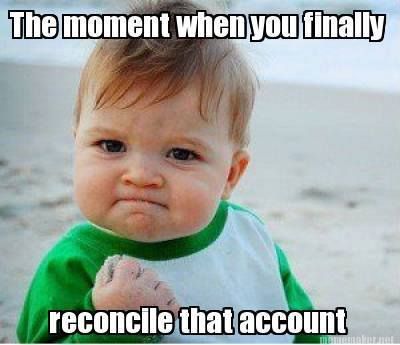Thank you, everyone, for your replies. But, respectfully, when it comes to accounting--my entire point was that there should be a standard (best practices) way to set up the CoA and the reports. Perhaps I did not explain my question well, so allow me to elaborate a bit.
Beyond my past successful entrepreneurial experience and subsequent decade as a sought-after business consultant known for rapid, sustained business growth, my husband and I both got a nasty shock when we started shopping for a B&B. That shock was the apparent fact that many B&Bs have extraordinarily poor accounting practices--many looked like they had used their checking account and stacks of paper bills as their "accounting" package. Every B&B broker we worked with had their own way of making up for this--generally by figuring out how to get whatever financial data was available into a standardized spreadsheet created by their firm. Frankly, its no wonder to me that many banks are hesitant to provide financing for B&Bs due to the apparent unreliability of their "financials" and total lack of internal or external auditing.
NOTE: I realize that B&Bs that are for sale are on the market simply because some/many of the sellers aren't really good at running a hospitality business. I have toured some of the great Inns and spoken at length with extraordinarily successful innkeepers as well--but they were all doing too well to want to sell at a price I would consider.

Ok, so beyond the observations above, it took me several very difficult years after starting my first business to accept that "standards" are a good thing. In those years, I railed against things like ISO 9001 and formal SOP manuals because I had my mantra, "My business is different from everyone else's--and if my clients are happy and I'm making money, then who cares?" Thankfully, I met a few gentlemen along the way who ended becoming my mentors and showing me the error of my thinking. Implementing "internationally-recognized standards" is not a path that leads to the death of creativity and innovation, nor does it suck the fun out of running a business. On the contrary, putting all the basics onto nice, tight rails of standards is a way to unleash innovation by eliminating the distraction by basics.
Wouldn't it make it easier for all Innkeepers if the "basics" like how to do bookkeeping and accounting were already worked out? Wouldn't that leave more time to actually work on their businesses? Doesn't it make sense that adoption of standards for non-differentiating business activities that have been evolved through the collaboration of thousands of industry professionals mean that an Innkeeper would have one less area of their business to worry about?... which then allows that Innkeeper to spend their brainpower on increasing their guests' perception of value and innovation on ways to differentiate their establishment?
Let me make my point from a purely practical standpoint... I believe that if a B&B owner has to do anything more than "print reports" when it comes time to seek (re)financing or doing taxes, then they are wasting time that should have been spent serving their guests. Since banks have well-established standards as do the tax folks, doesn't it make sense to work towards common accounting practices among B&Bs and Inns? How many of you have spent hours or days faced with massive piles of paper to prepare for taxes, or how many have paid the price--literally--to their CPA to make up for their bookkeeping practices?
I agree 100% with those who advised the perils of unnecessary complication or that Innkeepers who are not knowledgeable in bookkeeping should hire a professional. My original post was intended to reach towards those Innkeepers who are both knowledgeable in accounting and who see benefit in the growth and health of our overall industry, in addition to their own business.
Please don't get me wrong... I appreciate the warm and helpful advice given by anyone and everyone. There are lots of ways to run a B&B--and as a very new Innkeeper, I will not even attempt to claim expertise yet, but as I learn and grow in my new role, I am in the unusual position of wishing that standards existed--for the very reason that I want to focus on the joy of running my inn.
In my past experiences of running technology firms, I benefited greatly from even the partial implementation of standards such as ISO-27001, ISO-20000, and ITIL. They made my life easier, my business more competitive, and delivered a much more consistent value to my clients--which helped move my workload from "management" to actual "entrepreneurship", i.e., thinking about innovation, invention, growth, and bringing new products and services to the market.
I'm certain that I am putting entirely too much into this post-- but I was surprised by the seeming disinterest in the benefits of collaborative standards and I wanted to explain myself a bit. Thank you for taking the time to read my thoughts--and I hope you will consider elaborating more on yours as well..



















![Bed & Breakfast Tracker Plus [Download]](https://m.media-amazon.com/images/I/51m1WPxMV7L._SL500_.jpg)





![Bed & Breakfast Tracker Plus for Mac [Download]](https://m.media-amazon.com/images/I/51iSnnH5vmL._SL500_.jpg)


